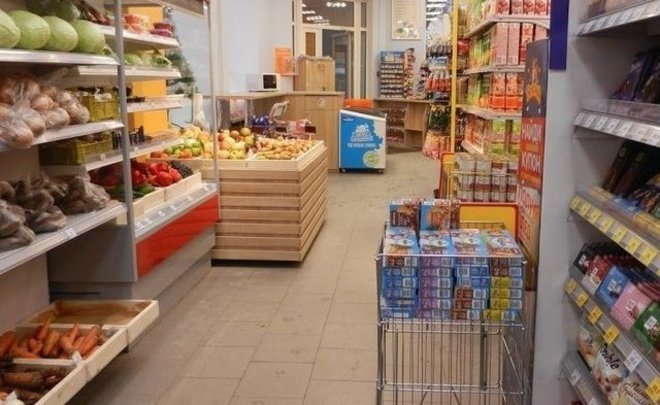“Seasonality factor cannot be excluded”: why a number of products become more expensive
Already in the first month of the year, food inflation was 2,29% (January to December) and 10,5% in annual terms

Rising prices on world markets, the seasonal factor and the outbreak of avian flu — this is not a complete list of reasons for the rise in price of products in Russia, experts say. “Now grain prices on the world market are being very high. Accordingly, it is more profitable for grain producers to sell goods in foreign markets, which creates a local deficit in the domestic market. This leads to an increase in prices," said Igor Kokh, Professor at the Institute of Management, Economics and Finance of the Kazan Federal University. Read the details in the material of Realnoe Vremya.
Seasonal increase in price of vegetables and fruits
Already in the first month, food inflation, according to Realnoe Vremya's own research, was 2,29% (January to December) and 10,5% in annual terms. Traditionally, the drivers of growth were fresh vegetables, which are affected by seasonality (peak winter). For example, fresh cucumbers rose in price by 13%, beets — 19,7%, carrots (washed) — 17%, onions — 19,5%. An important contribution to the price increase is the exchange rate, since many fruits and vegetables are supplied from abroad. The cheapest apples increased in value by 10,4%, to 86,6 rub per kg, oranges — by 11,7%, from 89,45 rub per kg to 99,92 rub per kg, bananas by 18,4%, but lemons fell slightly (-4%), to 103,2 rub per kg.
The regulatory measures taken by the Russian government affected the cost of some products: sugar fell in price for the month by 2,6%, to 44,48 rub per kg, vegetable oil showed a monthly decrease of 3,1%. In three of the four stores observed, the price of chicken eggs decreased slightly. The overall average decline was 5,3%.
Among dairy products, it should be noted that a growth in cottage cheese (fat-free) — 2%, margarine increased by 14,8%, cheese — 3,6%. Among cereals — peas (+12%).

Potatoes — by 41,6% more expensive, sugar — by 70,1%
When considering prices “on an annual scale” (year to year), the positive dynamics of the figures begins to depress: potatoes showed an increase in prices by 41,6% (from 16,764 rub per kg to 23,70 rub per kg), beets — 32,24%, carrots — 18,64%, onions — 19,6%. Selsky bread rose in price by 17%, Nareznoy loaf — by 15,8%. The same oranges (53,9%), bananas (23,6%) and pears (21,6%) were the drivers of growth among fruits.
Among meat products, there is an increase in the demand for pork without bones (33%). Sugar prices, though, stabilised, but in annual terms, the growth is still wild — 70,1% (as of 30 January 2020, the average price per kg was 26,14 rubles, as of 29 January 2021 — 44,48 rubles).
As for dairy products, the pace is set by the same cottage cheese (9,48%), margarine (14,8%) and cheese with butter (12,2% and 7,5%, respectively). Vegetable oil prices for the year added 12%, with "“manual containment”. We will add a “peppercorn” to the “dessert” — ground black pepper has grown over the year by more than 20%, and black tea — by 14,9%.
High grain prices and the fall of the ruble
Professor of the Institute of Management, Economics and Finance of Kazan Federal University, Doctor of Economics Igor Kokh, explaining the rise in prices for basic food products, identified several factors at once. One of them is the devaluation of the ruble.

Another factor is seasonality. “In winter, most often there is a rise in the price of certain types of food products: dairy products, eggs, vegetables. So the factor of seasonality cannot be excluded," the KFU processor believes. Besides, according to Igor Kokh, retail chains, as a rule, try to compensate for a certain decrease in demand during the New Year holidays by increasing prices. Losses related to pre-New Year and post-New Year discounts also play a role.
An important factor in the increase in prices was the increased costs of agricultural producers themselves. “Now grain prices on the world market are being very high. Accordingly, it is more profitable for grain producers to sell goods in foreign markets, which creates a local deficit in the domestic market. This leads to an increase in prices," says the professor of the KFU.
According to the interlocutor, at the beginning of the year, there is traditionally a fairly sharp spike in inflation, which slows down in the future.
“When a hype starts, the seller always thinks: “My time has come.”
Deputy Chairman of the Committee of the State Council of the Republic of Tatarstan on Environment, Nature Management, Agro-industrial and Food Policy Takhir Khadeev noted that food prices depend on many factors — primarily weather.

In his opinion, the main link that determines everything is grain and related products. And if the price of fuel and lubricants is kept approximately at the same level, the cost of fertilisers and pest protection products, largely dependent on the volatility of the dollar, has increased. Besides, grain prices have also increased significantly.
According to Takhir Khadeev, we always need good weather for a satisfying life. Moreover, this year marks the centenary of the mass famine in the Volga Region. “The most important thing is that there are products in the stores. This is very important. Work is underway. Our agricultural producers are preparing very seriously," he stressed.
According to the interlocutor, the increase in prices for some goods often inertially entails an increase in the cost of others, although there seems to be no apparent reason for this. “It's just that human psychology starts to work and works against itself," Takhir Khadeev is convinced. “When a hype begins, the seller always thinks: 'My time has come.”
At the same time, the deputy of the State Council of the Republic of Tatarstan does not see a significant direct impact of the new coronavirus pandemic on price growth. Takhir Khadeev noted that now the average Russian divides his income into three main items of expenditure — food, rent and treatment (for the older generation).
According to Khadeev, it is necessary to export less products abroad. “In the federal centre, special attention should be paid to this. Of course, it is profitable to sell abroad at this dollar rate. In this case, the market mechanisms and the Federal Antimonopoly Service should work. They should monitor what grain stock we have left. The seller thinks about profit. And a person holding a public office is obliged to properly approach this problem. Food is a very sensitive topic," the interlocutor concluded.